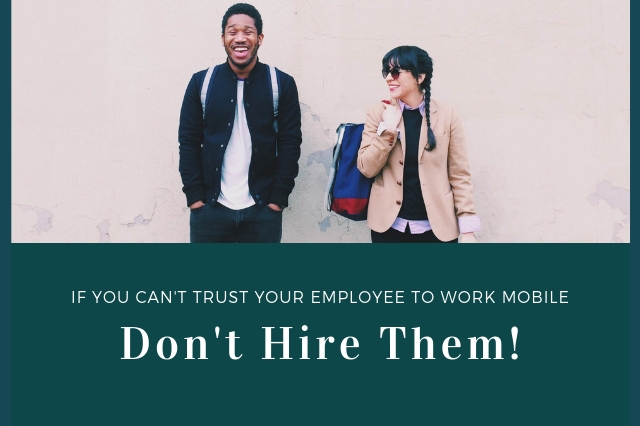
03 Jan The Rise of the Mobile Worker
Mobile working also refers to where you work when you work and how you work. Mobile working, unlike flexible working, is about allowing the worker the flexibility to manage their time and resources in a way that is in the best interests of the business. There is no reason why you cannot have a mobile worker with flexible working conditions. If targets and objectives are the most important metric to your business and they have been appropriately set, then flexibility on how to achieve them can be very good for business.
A MOBILE WORKFORCE
A mobile workforce refers to a group of employees who are scattered across various physical locations and are connected by computers, smartphones and other devices. Thanks to the increasing connectivity and improvement of technology that can be used for this purpose, mobile workers are increasingly becoming the norm. Mobile workers are similar to remote workers…if you want to know more about remote workers Click Here!
UNDERSTANDING THE MOBILE WORKFORCE
A flexible approach to work helps businesses retain their best talent as they are giving their workers an option to do great work, but in a way that fits their lifestyle providing a win-win scenario for all. This can also include remote workers. The practicalities of business require getting teams together, but this can easily be solved by:
+ Fixed days and/or times when everyone has to be in the office
+ Key meetings can be voice or video calls
+ Screen Sharing from anywhere.
For all the benefits that flexible working brings and the new ways of working offered by technology, none of it can happen without trust

DON’T TRUST YOUR WORKFORCE?
For all the benefits that flexible working brings and the new ways of working offered by technology, none of it can happen without trust. Unfortunately, many business leaders have the mentality of ‘out of sight, out of mind’, meaning if they cannot see you they think you’re not working. Many Managers report lack of trust for not transitioning staff to Mobile. Fearing workers won’t work properly, or at all if they weren’t present in the office. The shame is that these perceptions are not met in reality. There is a systematic approach that must be adhered to maximise the benefits and mitigate the risks. Collappor8 can cust design your work-flow – one that will work for you, your people and your customers.
The working culture in Australia is guided by principles of hierarchy, traditions and attention to detail. As such, logical reasoning and high levels of analysis are used to guide the culture, which can be seen as slow and procedural. With an entrepreneurial mindset, SME businesses can steal market share from tradition businesses by trusting the research and the studies that show people who do work away from the office overcompensate with their communication and work longer to show their colleagues they are in fact working. Technology companies like Cisco have introduced the model since before 2007 and have led the way in the development of the future workforce.
Modern businesses need to remove the old habits ingrained from the industrial era where you went to a single place of work between 9 and 5 every day to perform standardised tasks





Employers will have to revisit what is considered a productive measure and then adjust policy, reorganise and re-motivate if you have a team that actually cannot be trusted opposed to one you think cannot be trusted. The first mistake of limiting effectiveness, efficiency, and employee creativity is to be lazy and have one standard.
In this time of technological evolution, the traditional office and workplace do not and will not look the same as it has for generations in the past. You have to hire workers aligned with your business values and that can be trusted, and self-motivated. If you don’t – employee management will be more difficult than ever for those that are not results focused. When business leaders cannot differentiate personalities, work styles, and end up putting together poor untrusted teams then modernisation may not be possible, not because workers can’t be trusted, but because poor teams were created.
CONVERGED NETWORK
Mobile workers have become power users who may not even need a full-time office still require a professional environment and support service that is on-demand. From collaboration to presence services, remote-access solutions are an extension of the converged network and present similar requirements in terms of security, quality of service (QoS), and management transparency.
In order to know when the technology you need hits the market, you have to be looking. But we all get busy. So having management consultants and accountants in your pocket, watching and waiting for any new developments (technology or not) that will positively impact your business. We redesign business who could thrive with Remote Workers who may be:
+ Transitioning to Retirement
+ Experiencing changes in their family situation
+ Undertaking Higher Education, or
+ Able to work from home and save the business
We redesign business who could thrive with Mobile Workers who may be:
+ Area Operational Managers
+ Quality Assurance Officers
+ Sales Managers, Account Managers or Business Development Managers on the road visiting customers
+ Trade Staff performing work or warranty work